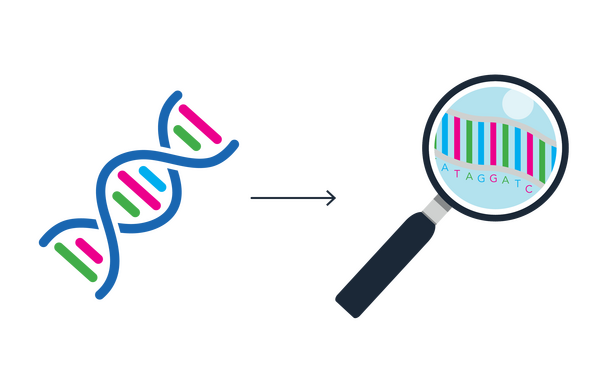New genetic disorders have been discovered from the National Genomic Research Library
By Florence Cornish onNew research has uncovered 2 neurodevelopmental disorders using data from the National Genomic Research Library. These findings have led to new diagnoses for patients and families, opening doors for potential future treatments.
What are neurodevelopmental disorders?
Neurodevelopmental disorders are conditions that affect the way the brain develops and functions. Symptoms can range from mild to severe, often impacting motor skills, behaviour, communication and cognition.
Neurodevelopmental disorders affect approximately 2-5% of people worldwide. They can often arise due to genetic changes in a person’s genome, which can be inherited from parents, or appear in a person with no family history.
Finding new disorders
3 new pieces of research have analysed genomic data from thousands of participants who volunteered their data to the National Genomic Research Library.
Published in Nature Genetics, these studies by Jackson and colleagues, Nava and colleagues and Greene and colleagues uncovered 2 new neurodevelopmental conditions. These were named RNU2-2-related disorder and RNU5B1-related disorder, and both are caused by genes in the non-coding genome.
RNU2-2-related disorder has been linked to symptoms including intellectual disability, seizures, small head size and developmental delays.
RNU5B1-related disorder has been linked to weak muscle tone, large head size, developmental delays, and poor growth.

What do we mean by the non-coding genome?
The non-coding genome is the portion of our DNA that does not code for proteins.
You may also have heard it be referred to as 'DNA dark matter', because it took scientists a long time to understand its function and importance.
Whilst we still don’t know the exact purpose of the non-coding genome, we do know that non-coding genetic changes can affect our health.
Despite this, however, standard, more traditional genetic tests only look at DNA in the coding genome, meaning that non-coding genes can get overlooked.
Exploring non-coding DNA
This recent research highlights the importance of studying our non-coding genes.
The findings add to the growing body of evidence that non-coding DNA can play a vital role in brain development, and that further research could help to improve our understanding even more.
This research follows another discovery from 2024, in which scientists found a different non-coding gene named RNU4-2.
Changes in the RNU4-2 gene were found to be the most common single-gene cause for neurodevelopmental disorders, and its discovery allowed hundreds of people across the globe to receive a diagnosis, with potential for thousands more.
You can read more about this research in a previous blog.
The era of genomic sequencing
Discoveries such as RNU2-2 and RNU5B1, along with RNU4-2 discovered last year, have been made possible by large scale sequencing techniques such as whole genome sequencing, which allow us to look at both coding and non-coding DNA.
Storing this data in the National Genomic Research Library allows approved researchers to study non-coding genetic changes that older, more standard testing may not have been able to find.
And finally...
If you want to learn more about whole genome sequencing, check out our previous blog Genomics 101: What is whole genome sequencing?
You can also learn about more discoveries from the National Genomic Research Library by reading our other research blogs.


